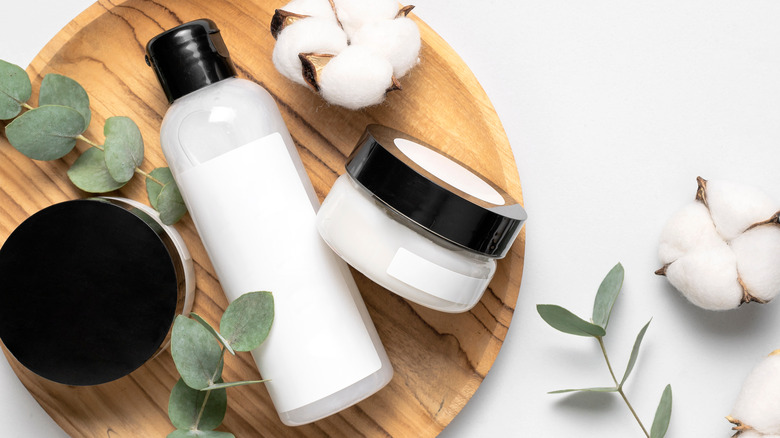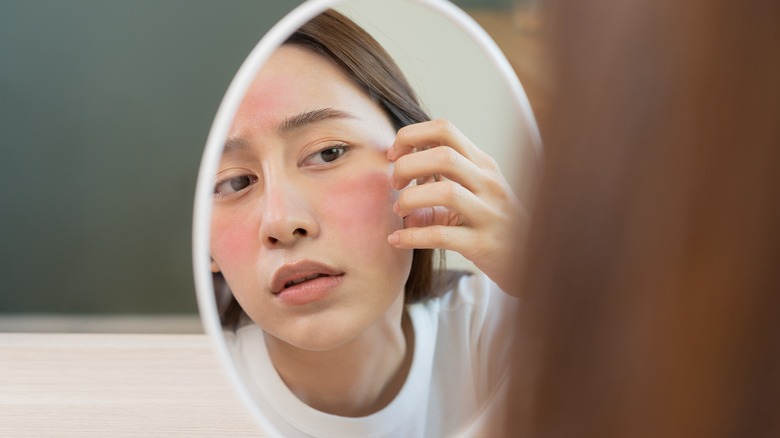The Difference Between Hydrating And Moisturizing Your Skin
According to Live Science, the skin is the largest organ of the human body, and accounts for 16% of our body's weight, stretching over 22 square feet. It plays various roles, including protecting the body from microbes and regulating temperature, per Stanford Medicine. Therefore, nourishing the skin is vital to keep it healthy and glowing, per WebMD. That's where hydration and moisturizing come in. Both of these terms are a mainstay in the skin care industry, but many people assume that only dry skin needs moisture. This assumption might be caused by confusion between the two terms, which are often used interchangeably.
To successfully draw the line between hydration and moisturizing, we need to understand the skin's anatomy. It is also helpful to know how these two activities sustain the health of the skin and keep it thriving. Let's delve into the key differences between hydrating and moisturizing your skin.
What is the difference between hydrating and moisturizing?
According to the Mayo Clinic, the skin has three layers — the epidermis (outer layer), the dermis (inner layer), and the subcutaneous tissue, which is the deeper layer close to the tissue (via MedicalNewsToday). Some layers of the skin are likely to break if they lack the right amount of water, per the Mayo Clinic. For the most part, this is why hydration is important.
The skin also has a built-in system to retain water, consisting of the stratum corneum, corneocytes, and fats called lipids, according to WebMD. However, this system doesn't always work optimally, exposing the skin to various agents that cause dehydration, per WebMD. At this point, you might need to hydrate or moisturize your skin.
When you hydrate your skin, you're drawing water from the atmosphere into your skin, according to Healthline. In the skincare industry, substances that hydrate the skin are known as humectants, and usually contain ingredients like honey, gelatin, and glycerin per MedicalNewsToday. These humectants can also moisturize the skin. Unlike humectants, however, moisturizers are occlusive agents that work as sealants, holding the water in place (via Healthline). Petrolatum, mineral oil, and emollients like plant oils are some examples of moisturizers, according to Healthline.
Does your skin need hydration or moisture?
The line between hydration and moisture can sometimes be hard to notice, which makes choosing the right skincare products tricky. As a guide, Healthline recommends using occlusive agents like petrolatum if you have a dry skin type. According to MedicalNewsToday, skin types fall under various categories based on how much oil or sebum your skin produces. For those with dry skin, the thickness of occlusive agents creates a protective seal on the skin's surface, preventing moisture from escaping, per Healthline.
Hydrating serums with hyaluronic acid can also help if your skin is dehydrated but not necessarily dry, as stated by Healthline. In contrast, the source recommends water-based hydrating or moisturizing skin products for people with oily skin, as oily skin can still be dehydrated.
If you're still unsure about your skin type, consult with a dermatologist. They can help you unlock this puzzle by measuring your skin's sebum content. They'll also help you understand which products are compatible with your skin type.



